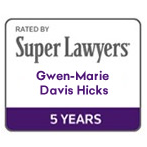Guilty. Guilty. Guilty. As a former Assistant State’s Attorney of almost 13 years, yesterday was so surreal, so poignant. I spent most of my career prosecuting violent crimes. So the moment I heard that the jury had reached a verdict less than 24 hours from the time deliberations began, I knew that there was going to be a guilty finding on at least one count. The evidence in my view was overwhelming, undeniable and inescapable. The jury asked no questions despite sitting through a lengthy trial lasting weeks. They did not have to be admonished with an Allen charge that would require them to push past an impasse on one or all of the charges. The jury deliberated for only 10 hours…just enough time to take an initial vote, go through their notes, review the evidence and vote again. All signs pointed to conviction but I chose not to presume that the jury would be united in finding a guilty finding on the top count of Second-Degree Murder. I chose not to presume because jury trials are inherently risky. Part of the job of a prosecutor is overcome human emotion and private biases with cold hard facts and black letter law. The goal is to convince a jury to such an extent that the outcome is unavoidable. Convincing a jury beyond a reasonable doubt can be literally be back breaking because most human beings do not want to be responsible to removing another person’s liberty. The natural reaction is for humans to distance, to subvert, to look for a way out. That is why the prosecution had to lay out the case in painful detail. The goal was not just to prove the case beyond a reasonable doubt but to provide enough evidence to absolve each and every juror of any guilt they may have about standing in judgment of another human being and removing their liberty. A verdict in less than 24 hours proves that the prosecutorial team did their job.
So what’s next? Well now we wait. The presiding Judge requested a Pre-Sentence Investigation. That investigation will involve courthouse staff reviewing Chauvin’s criminal record, interviewing his family, colleagues and neighbors. The Judge and his staff will review the case with an eye to any aggravating factors which may or may not require a sentence enhancement. The Judge will then use sentencing guidelines to come up with a number. The State, I can assure you, has already completed their own sentencing guideline and have a number in mind. The Defense will prepare arguments for leniency. The State will be prepare arguments for an enhanced sentence closer to a maximum sentence. The goal will be to convince the Judge to bring down a sentence that takes into consideration the gravity of the crime, the callousness of the Defendant, the lack of remorse and the safety of the public. So there will be a bit more work occurring over the next 2 months but the heavy lifting as to Chauvin’s case is over.
We at GDH LAW are elated for the family of George Floyd. I know the great relief they must feel that the world and our imperfect justice system saw their loved one’s humanity.
By: Petra Aaron
Petra Aaron, is a Senior Trial Attorney at GDH Law in Lanham, Md. She is the co-chair for the Minority Caucus for the Maryland Association for Justice. Ms. Aaron currently helps victims of serious personal injuries, wrongful death cases, and auto crash injuries. Contact her at: pa****@********rm.com, or 301-769-6835.












